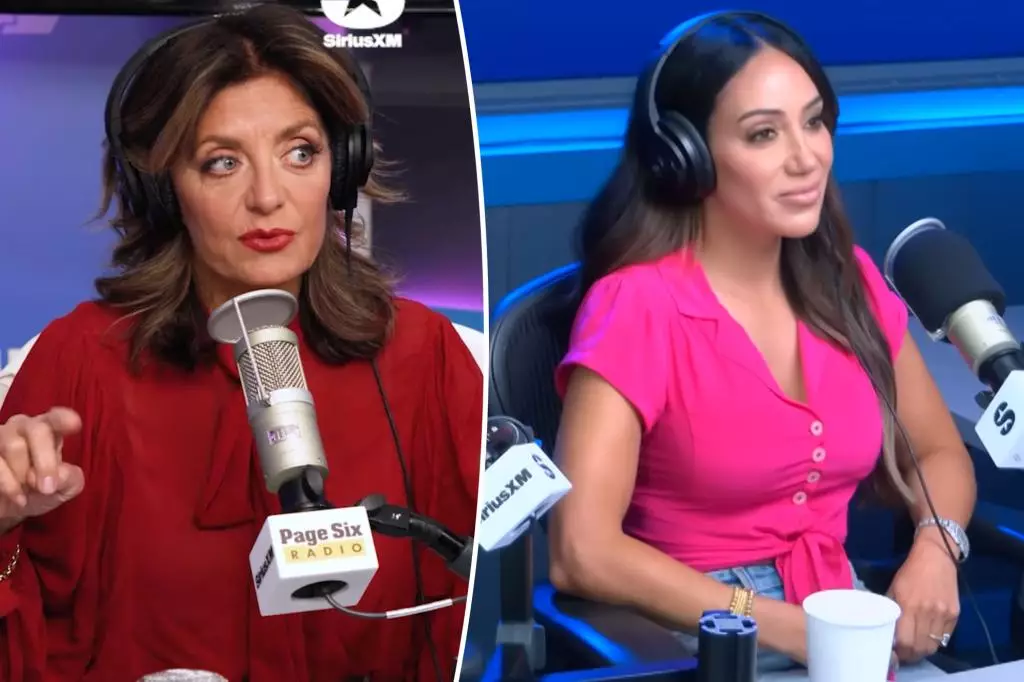Reality television blurs the lines between drama and life, often spinning narratives that cater to the audience’s appetite for conflict and resolution. One glaring example of this phenomenon can be observed in the ongoing saga involving former “Real Housewives of New Jersey” star Kathy Wakile and her estranged cousin-in-law, Melissa Gorga. Their recent public exchange, punctuated by claims of manipulation surrounding a supposed reconciliation, brings to light the intricate web of relationships and perceptions shaped by media portrayal. By analyzing the intricate dynamics at play, we can unravel the motivations and implications of these interactions, which are no doubt influenced by the pressures of reality TV.
Claims and Counterclaims: The Lunch Timeline
The crux of the controversy centers on a lunch meeting between Wakile and Gorga, which Gorga later framed as a spontaneous idea ignited by television host Jeff Lewis. Gorga expressed a longing to reconcile familial ties, suggesting that her husband, Joe Gorga, reconnect with Kathy over the lunch table. However, Kathy responded with skepticism, asserting that they had already met before Gorga’s televised claims. This narrative contradiction raises questions about authenticity in their interactions. Is Melissa, in her quest for reconciliation, merely playing to the cameras, or is there genuine intent behind her words?
Kathy’s concerns about the timeline imply a broader commentary on the necessity for authenticity in relationships. As viewers, we often become enmeshed in the dramatic storytelling crafted by networks. Here, Kathy seems to suggest that personal narratives are being twisted for entertainment, which speaks to a deeper issue surrounding emotional manipulation in reality TV.
Text Messages and Misunderstandings
Communication often becomes muddled, especially when third parties such as the media insert themselves into personal matters. Kathy described a preceding interaction in which Melissa reached out via text, indicating a desire for a conversation. In this context, the simplicity of a text message is transformed into a catalyst for broader speculation. The fact that they shared a physical space at a charity event without crossing paths adds another layer of complexity — a missed opportunity cloaked in assumptions and past grievances. Kathy’s reflective questioning—“Shame on [Joe] if he saw me and didn’t come up to me”—illustrates the intricate emotional landscape they navigate, marked by familial loyalty, resentment, and the desire for resolution.
This situation emphasizes how feelings can be amplified and distorted by public perception. Critics might suggest that, in the grand scheme of the “Real Housewives” conflict narrative, Gorga’s actions could be viewed as a calculated move to revive interest in their storylines. Kathy’s remarks hint at this possibility, asserting, “I’m not a storyline. I am my own life.” Yet, even as Kathy wishes to stand apart from this narrative, she remains inextricably tied to it—an artifact of the reality television machine.
The Weight of Past Grievances
When Kathy and Melissa eventually met for lunch, the outcome fell short of what Gorga may have envisioned. While Kathy characterized the encounter as “fine,” her hesitation signals that lingering tensions were still very much present. Their interaction seemed like an obligatory step rather than a heartfelt reconciliation. The reminder of past conflicts echoes the sentiment that mending ties is often not as straightforward as it appears on screen. If anything, it serves as a reminder that unresolved issues tend to resurface, posing questions about the viability of truly forgiving and forgetting within a family dynamic exacerbated by public scrutiny.
Kathy’s observation regarding the meeting’s awkwardness and air of ambiguity sheds light on the difficult reality of driving narratives in a space where personal lives are on display for public consumption. Instead of wholly embracing reconciliation, it seems both parties were navigating a dance of pretense, steeped in their shared history of conflict.
Navigating the Media’s Role
The media plays a pivotal role in shaping narratives like that of Wakile and Gorga. Statements made in one setting can be repackaged and recontextualized to fit a specific narrative arc designed to uphold viewer engagement. In this case, Kathy’s assertion that “it could’ve been a really good part” of Melissa’s motivations hints at the self-awareness needed for individuals embroiled in public life. Both parties sit within a precarious balance of personal choices and public expectations, often leading them to ask themselves how much of their narrative is dictated by external forces.
In summation, the story of Kathy Wakile and Melissa Gorga extends beyond mere familial conflict; it delves into the heart of what it means to navigate personal relationships under the glaring spotlight of reality television. As viewers become complicit in constructing these stories, it begs the question of whether reconciliation is genuinely possible when the motivations behind it can be clouded by performance and perception.

